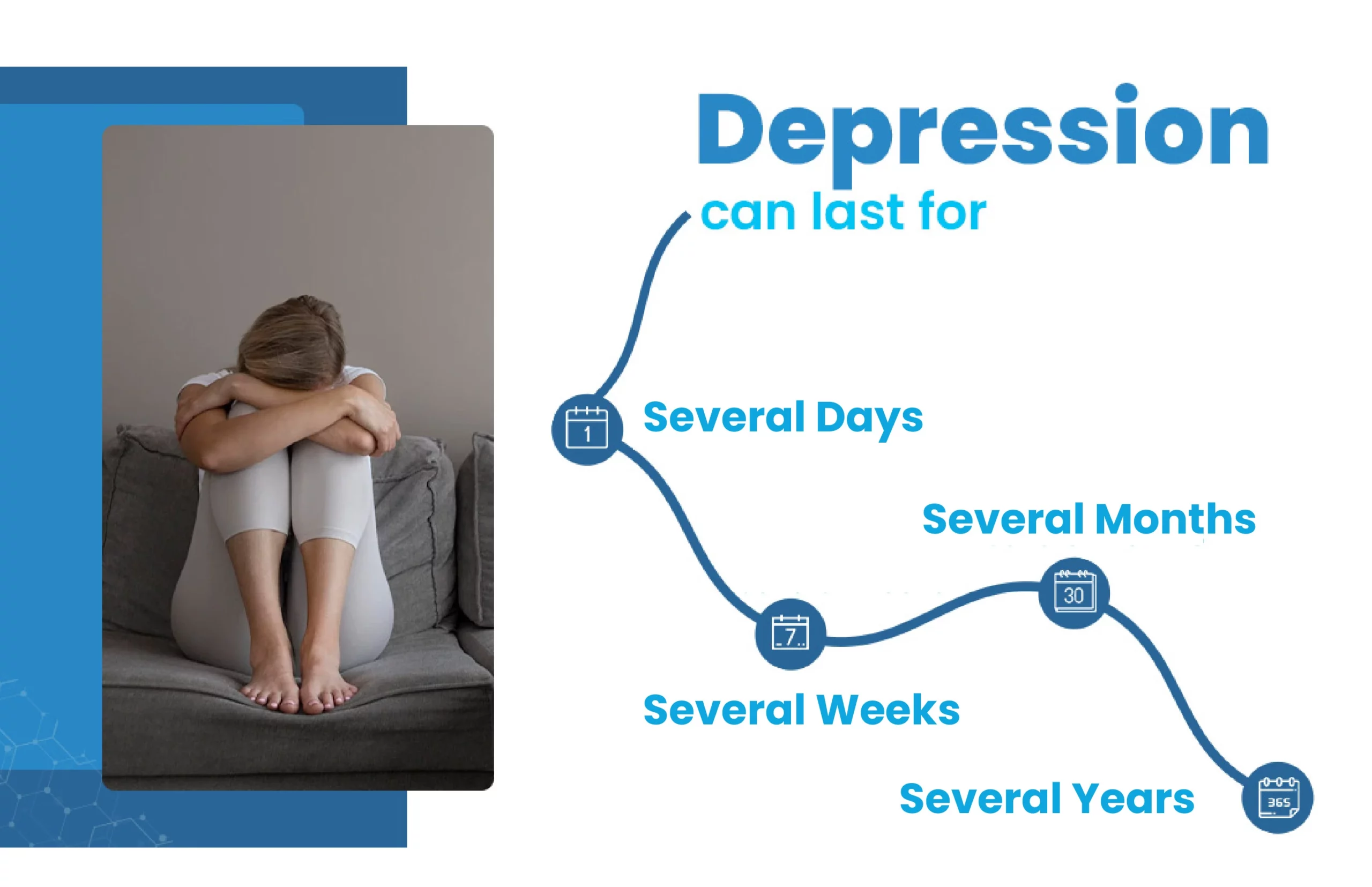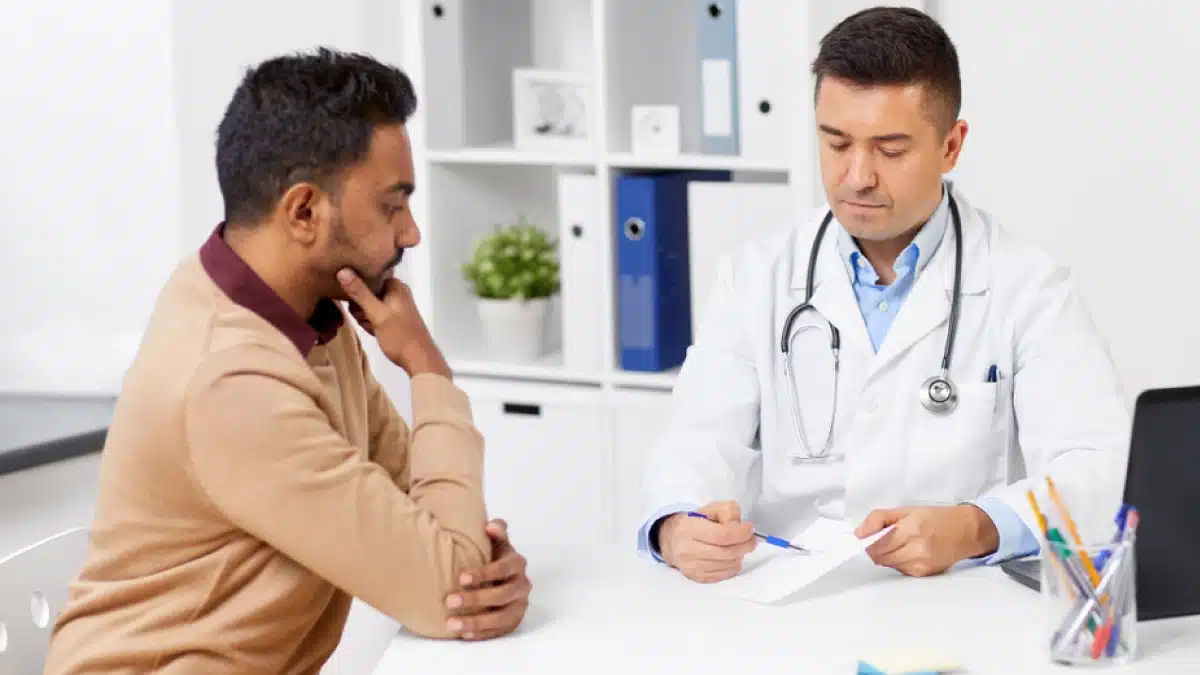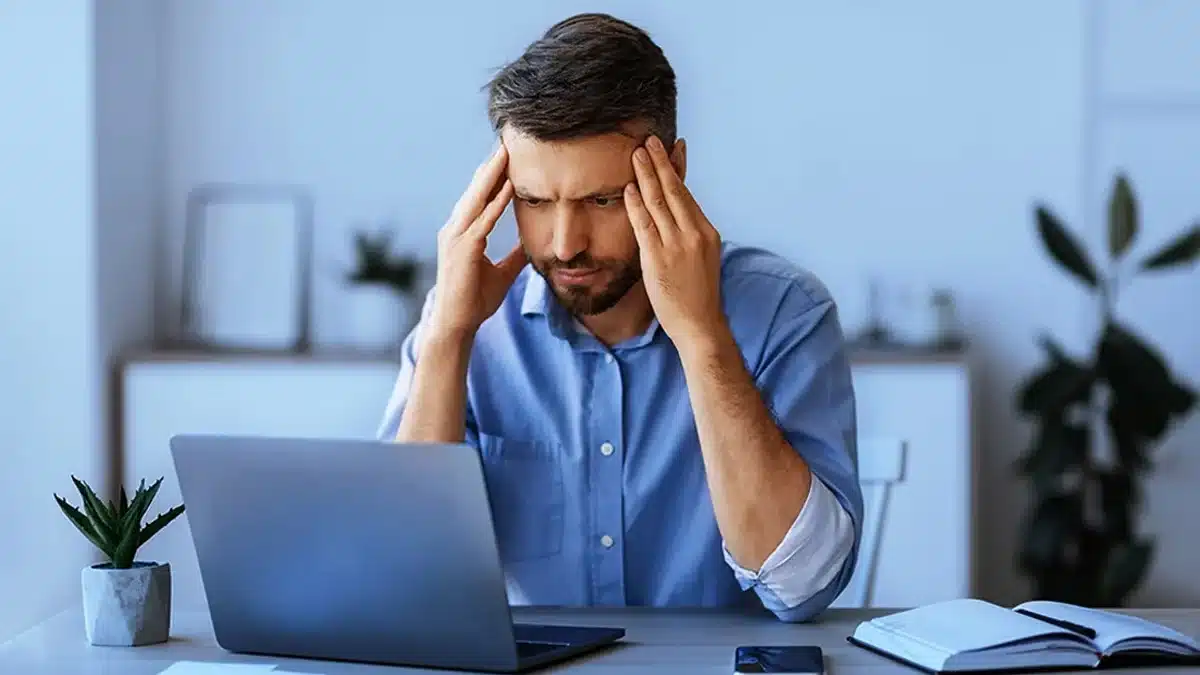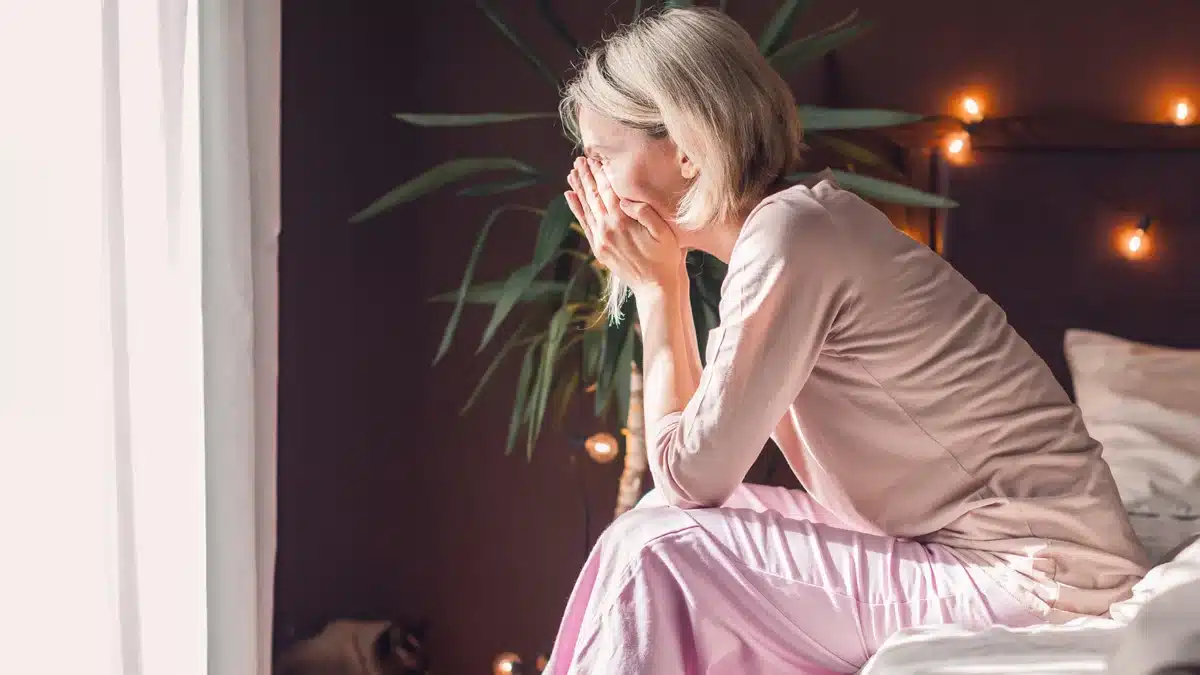
Depression is a common type of mood disorder. Individuals affected by depression experience various conditions such as sadness, lack of attraction to everything, bad feelings, and weird mood swings. Bipolar disorder, unipolar disorder, seasonal affective disorder, persistent depressive disorder, and postpartum depression are different types of depression.
Major depressive disorder, and major depression, is a mood disorder. Feeling “down in the dumps” or “blue” clinical depression is thought to be caused by inequalities of chemicals in the brain system.
You must be experiencing at least five depression signs or symptoms once a day for at least two weeks consecutively. Symptoms or signs include being less curious about most actions you once enjoyed, feeling helpless or regretful (often about things that would not usually make you sense that way), feeling oddly tired and lacking power, and more.
How long depression last depends on lifestyle aspects and whether or not you acquire prompt therapy. The short answer is that it can last for several days, weeks, months, or years.
Depression Episodes
Depression is a weird disease that consists of depression episodes, like ” flares” in individuals with multiple sclerosis or arthritis. An attack is when people have depression signs or symptoms for at least two weeks or more.
The length of an episode will vary to what type of depression you have. While individuals have only one episode, most people with depression have recurring episodes lifetime. It is why treatment is so essential to get rid of depression.
The symptoms or signs can worsen, leading to significant impairment, interfering with relationships and jobs, or leading to self-harm or suicidal ideation like any illness. People with MDD (major depressive disorder) may experience total or partial remission, where the symptoms and signs go away, or they experience no signs.
Researchers discovered that the risk factors for recurring depression episodes include:
- A person’s specific symptoms
- Experiencing another psychiatric disorder (comorbidity)
- Depression runs in the family.
- Personality
- Mental patterns
- Stressful life events
- Previous trauma
- Dependable source
- Insufficient social support
If you are at higher risk for experiencing recurring depression, therapy can effectively manage your signs and may minimize the frequent depressive episodes.
Symptoms of Long Lasting Depression
Individuals who want to be diagnosed with depression must indicate at least five symptoms of depression at least once in two weeks. Expected depression symptoms may include:
- Losing interest in previously pleasant activities
- Feelings of melancholy, tearfulness, emptiness, or hopelessness regularly
- Frequent mood swings or furious outbursts, impatience or frustration, even over little issues
- Disturbance in sleep patterns, such as sleeping too much or too little
- Appetite suppression or stimulation, resulting in weight loss or gain
- Anxiety, agitation, or restlessness
- Withdrawal from loved ones
- Problems thinking, concentrating, making judgments, or remembering things
- Suicidal thoughts that are frequent or recurring
- Undiagnosed physical illnesses, such as back pain or headaches
The duration of depression varies drastically from individual to individual. It will depend upon the variety of aspects, including the kinds of depressive disorder they have and whether they will receive proper treatment for depression.
In addition, depression can be highly recurring, with most individuals who encounter one episode having multiple more episodes lifetime.
Aspects That Affect Long Lasts Depression
Depression episode symptoms are likely similar to the “flares” in individuals with numerous arthritis or sclerosis. Something may unexpectedly irritate their signs, causing them to worsen or “flare up.”
Various things can drive flares or depressive episodes in people with a major depressive disorder, such as:
- Comorbidity (having another mental health problem or substance use disorder) (having another mental health disorder or substance use disorder)
- Depression runs in the family.
- Personality
- Patterns of thought
- Previous adversity
- The death of a loved one
- Inadequate social support
- Stressful life situations
- Mental health problems
So how long do depressive episodes last? Typically, the depressive episode length ranges from six to eight months, depending on the individual.
Treatment For Depression
Depression is a treatable disease; earlier, more effective treatment is already started, as stated by the National Institute of Mental Health. Therapy which is also very useful in helping to control relapse in people living with recurring depression, is known to be Maintenance therapy.
Therapies may seem to be different for everyone. Treatments should take people’s characteristics, signs, and concerns into review. A combination of therapies is often the most effective, but each individual is different.
Various treatments include:
- Antidepressant Medications
- Psychotherapy
- Electroconvulsive Therapy
- Hospitalization
Antidepressant Medications
There are various types of antidepressants, and sometimes what functions for one individual doesn’t function for another one. It is not unusual to have to test more than one medication to find the one that will work finest for you or not.
Antidepressant medications include:
- Inhibitors of selective serotonin reuptake (SSRIs)
- Inhibitors of serotonin-norepinephrine reuptake (SNRIs)
- Antidepressants tricyclic (TCAs)
- Monoamine oxidase inhibitors atypical antidepressants (MAOIs)
- Additional drugs that could be used to treat depression off-label
Sometimes a combination of drugs might be used, as well as anti-anxiety medications, depending on your situation. If one medicine doesn’t work for you, your doctor may try another that might work for you.
Psychotherapy
Therapy or psychotherapy typically directs to “talk therapy” with a therapist. Many individuals visit therapists for numerous reasons, whether or not they have depression. Talking about problems in your life with an individual who is a qualified mental health professional can be helpful too.
There are various psychotherapies, including cognitive behavioral (CBT) and dialectical behavioral therapy (DBT).
Therapy that can assist you:
- Identify the “triggers” that cause depression
- Identify any harmful assumptions you have
- Developing new and positive ideas offer you coping methods for unfavorable events and feelings
Psychotherapy is tailored to each individual, and by talking about your objectives and anticipations with your therapist, they will be capable with you to assist you in negotiating with your depression.
Electroconvulsive Therapy (ECT)
Electroconvulsive therapy (ECT) is not widely used and unsuitable for everyone. However, it can be effective in treatment-resistant strategies and recurring severe depression.
The therapy uses an electrical current to elicit an attack while a person is under general anesthesia. It’s usually used when other therapies have not been helpful. It is not used as a first-line treatment since it does not have some vital side effects like memory failure (memory loss).
If you think that electroconvulsive therapy is a cure, the clear answer is that it is not. Maintenance treatment and likely mentioned above, treatments are necessary and healthy to use.
Hospitalization
Hospitalization might be necessary if the following signs you have such as:
- when the depressive episode is extreme
- when you are incapable of keeping yourself secure
- when you are incapable of caring about yourself
During your stay in a hospital, your medication (if you are on it) might be checked or altered, and individual and group therapy might be necessary for it. It is to provide you with the help and treatment you need and keep you secure until your depressive episode diminishes.
Frequently Asked Questions (FAQs)
How long is the average depression?
Depressive episodes typically last six to eight months, depending on the individual. While some people experience temporary depression, others may experience depression on and off throughout their lives.
It differs significantly from one person to the next. It will depend on factors, including the type of depressive condition and whether they will undergo depression treatment. Furthermore, sadness can be very persistent, with most people experiencing many bouts throughout their lives.
When a patient initiates a useful antidepressant, they may detect changes in 2 weeks; however other individuals may not detect a difference in their symptoms for four to six weeks. Individuals may need antidepressants for more than a year before experiencing remission.
How long it takes me to recover from depression?
NIMH (National Institute of Mental Health) reported that depression is a treatable condition, and early, more effective treatment is already underway. It varies from one person to another.
It will depend on several factors, including their type of depressive condition and whether they will undergo depression treatment. Furthermore, sadness can be very persistent, with most people experiencing many bouts throughout their lives. It can last for several days, weeks, months, or years.
How long do depressive episodes usually last?
Depressive episodes usually last six to eight months, depending on the individual. While some individuals experience temporary depression, others may experience depression on and off throughout their lives. Furthermore, distinct kinds of sadness fade with time and are more transient.
A depressive episode can typically last for at least two weeks, and the signs of depression are constant and arise nearly every day for the time duration of the depressive episode. Any other medical condition, substance abuse, or disorder cannot define them.
How long does depression last?
It can last for several days, weeks, months, or years. Depressive episodes typically last six to eight months, depending on the individual. They are thought to be considered respectively.
According to the NIMH (National Institute of Mental Health), typically, depression is a treatable disorder, and early, more effective treatment is currently beginning. It differs from individual to person.
It will be determined by various things, including the severity of their depression and whether or not they will seek depression treatment. Furthermore, sorrow can be highly chronic, with most people experiencing many bouts throughout their lives.
The Haven Detox – Find Quick Help
The Haven Detox – South Florida is a professional mental health and addiction treatment facility in the United States of America. We want to make people feel at ease via treatment plans during the withdrawal and recovery.
At The Haven Detox in South Florida, we provide various treatment options, including different levels of care, such as a Residential Treatment program and detox.
To treat depression in a safe environment, Cognitive Behavioral Therapy (CBT) is available. Don’t tackle your mental health depression or addiction issues on your alone. Also, cover your insurance with us.
The Haven’s expert team and mental health professionals can assist in delivering respite. If you or a loved one (family or close friend) is experiencing difficulties, don’t hesitate to contact our counselors at (561) 328 – 8627. Our admissions counselors and support groups are accessible 24 hours daily to answer your questions.











